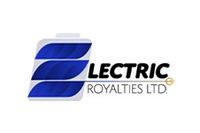Cobalt Recycling Needed to Combat China, Congo Supply Control
Cobalt is a critical mineral with far-ranging applications, but with the Congo and China controlling the world’s cobalt supply, western nations, many of which do not produce any cobalt, are expanding recycling programs to alleviate shortage of the mineral.
By Karan Kumar — Exclusive to Cobalt Investing News
The United States, like many other western nations, produces virtually no cobalt, a mineral that is crucial for several applications, including superalloys and batteries for phones, laptops, and electric vehicles. The Democratic Republic of the Congo supplies nearly two-thirds of the world’s cobalt, most of which is refined in China. Hence, recycling cobalt is important, especially in countries that do not produce the metal. And the trend is growing.
“In 2011, cobalt contained in purchased scrap represented an estimated 24 percent of cobalt reported consumption” in the US, the US Geological Survey said in a recent report. “China was the world’s leading producer of refined cobalt, and much of its production was from cobalt-rich ore and partially refined cobalt imported from Congo. China was a leading supplier of cobalt imports to the United States.”
In the European Union, which has identified 14 minerals, including cobalt, as critical, the intention is to recycle as much as possible of these minerals until new supply sources are established. In cobalt’s case, that means supply from the Congo and China needs to give way to other sources.
“The recycling rate of different metals varies considerably,” a study by the European Pathway to Zero Waste, a part of the UK’s Environment Agency, showed. While some minerals like gallium and rare earth have recycling rates of less than one percent, cobalt, niobium, and some platinum-group metals “are all reported to have a recycling rate above 50%,” the study showed.
Cobalt recycling economically feasible
While recycling minerals can be expensive, “[r]ecycling cobalt from lithium-ion batteries and metal alloys is economically feasible at current cobalt prices,” according to the US Department of Energy.
Belgium-based Umicore SA (EBR:UMI), one of the world’s largest precious metals recyclers, already has a process in place to recycle cobalt and nickel from rechargeable batteries. The company has said its process “enables an Environmentally Sound battery recycling of used Li-ion, Li-polymer and NiMH batteries, without any potentially hazardous pre-treatment, and returns the main Nickel and Cobalt metals into the form of new advanced materials for new battery applications.” Last year, Tesla Motors Inc. (NASDAQ:TSLA) launched an initiative to recycle its industry-leading battery packs throughout Europe at Umicore’s facility in Belgium.
Honda Motor Co. (NYSE:HMC) and Japan Metals and Chemicals this month developed a technology “capable of extracting the rare earth materials from a battery and separat[ing] them from the stainless steel of the battery,” Hydrogen Fuel News reported. “The stainless steel produced through the process can be reused and the nickel and cobalt recovered is pure and abundant enough to be used in new batteries.”
John Petersen, writing for Alternative Energy Stocks, a website that provides information on alternative energy, renewable energy, and clean technology companies, said that “given the extremely high metal value of used cobalt-based lithium batteries it seems strange that only one company in the world, Unicore of Belgium, has bothered to develop a recycling process.” He said the reason is obvious: “[r]ecycling lithium-ion batteries is an incredibly complex and expensive undertaking.” He continued, stating that the “process is economic when a ton of batteries contains up to 600 pounds of recoverable cobalt that’s worth $40 a pound. The instant you take the cobalt out of the equation, the process becomes hopelessly uneconomic.”
Securities Disclosure: I, Karan Kumar, hold no direct investment interest in any company mentioned in this article.


